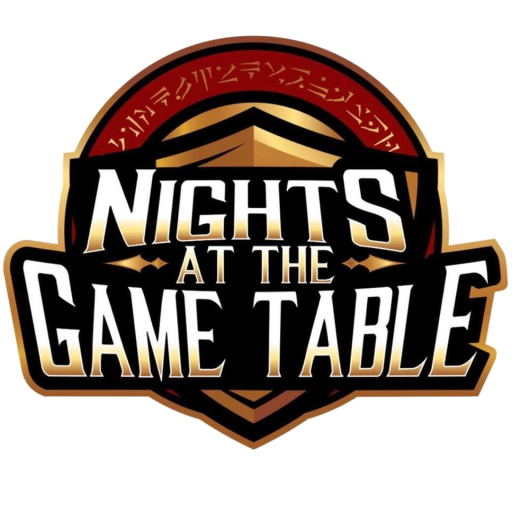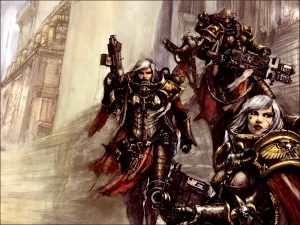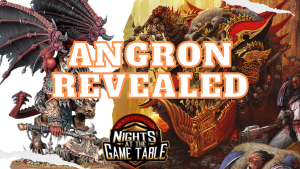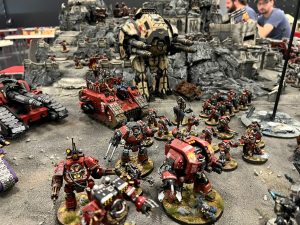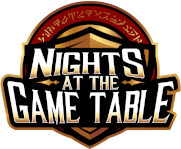We here at NATGT have some very exciting news for you!
In conjunction with the release of our brand-new Magic: The Gathering series, we’re now going to feature a weekly series by deck expert and series commentator Aryeh Wiznitzer, whose first article can be found below!
In the coming weeks, we’re going to have a lot of great columns about everything from new standard cards to M19 limited strategy. Before we get to all that exciting new content, today we’re going to talk about something old: pre-M19 standard.
Last weekend, I was lucky enough to get to the top-8 of the team standard Regional Pro Tour qualifier at Madness games in Plano. A big shout out to my teammates Eddie Eng and Stephen Bacala for playing an awesome tournament!
Going in to the event, we had a lot of discussions about the difficulties and complications of the unified standard format. If you’re unfamiliar with this unique tournament structure, unified rules mean that players on the same team cannot share any copies of a card between decks.
Though there is enough variety in maindecks to avoid too much overlap, there are some key sideboard cards that create bottleneck situations. Duress and Negate, two of the best sideboard cards in the format, can only be played by one of the three players. This essentially means that you’re stuck with one control deck, one aggressive deck, and some type of third strategy. While some of the Dallas players ended up playing a very cool 4-color Thaumatic Compass deck in their “third” slot, we chose the somewhat bland combination of Blue-White control, Monogreen Stompy, and Red-Black Aggro.

The thought process here was pretty simple: play the most copies of the best standard cards, and make sure that all three decks are capable of putting pressure on the opponent. In the case of our green deck, this meant playing Cultivator’s Caravan, a very large 5/5 vehicle, in the slot usually taken by Heart of Kiran.

While Heart is a better card, it was already in use by our RB deck. Also, Caravan is very, very good at helping cast Ghalta, Primal Hunter. A 5/5 that taps for mana gets you halfway to casting that powerful creature, and our deck’s configuration allowed us to cast the giant 12/12 dinosaur as early as turn three consistently.
We also chose to feature a card that is, in my opinion at least, one of the most criminally underplayed cards in standard: Weatherlight.

While Urza’s greatest creation hasn’t seen much play in standard events, it’s one of the most powerful vehicles in the format. Not only does a 4/5 flyer block Heart of Kiran and Glorybringer effectively, many of the key cards in our green deck are historic, so we can get a lot of value off of Weatherlight’s ability to dig for Ghalta and Rhonas, the Indomitable in our maindeck, and Lifecrafter’s Bestiary and Nissa, Vital Force in our sideboard.
Our Blue-White deck also featured some twists on the archetype, as I chose to play four copies of History of Benalia and Karn, Scion of Urza in my maindeck. Most U/W decks eschew these types of cards in favor of instants, but I believe that the “Tapout” or sorcery speed U/W deck is simply superior to those versions. Playing additional threats in the main has the dual benefits of helping to close games quickly, a real concern in a slow deck, as well as providing a board presence to block against aggressive strategies like monored. If all I get out of History of Benalia is two chump blocks of a Hazorat in front of my Teferi, Hero of Dominaria, for example, I’m more than happy to have played the card.
Our third deck was a Goblin Chainwhirler strategy. Nuff said.

After losing a close battle in round one, we rattled off five wins in a row, in which I was able to narrowly defeat several strong players including Todd Stephens and Haibing Hu in a couple of the closest matches of Magic I’ve ever played. While we ended up falling just short of our goal to qualify for Pro Tour 25th Anniversary, I learned some lessons about team play that might be helpful as both the Magic Grand Prix and Star City Games Tour have multiple team events on their upcoming schedule.
Here’s a quick rundown of some key aspects of team play:
- Communication: though you are allowed to talk with teammates as much as is reasonable, it’s always best to trust your teammate to make a decision. If they feel confident about a particular sequence or line of play, I will always defer to my teammate’s greater knowledge of the match they’re playing.
- Deck Choice: team events are awesome, but there’s a reason there are more unintentional draws in these events than other Magic tournaments. I love slow, weird decks as much as (ok, probably more than) anybody else, but a deck that struggles to win in 50 minutes is simply the wrong choice for a team tournament
- Mistakes: One of the central facets of Magic is that we all make mistakes. When you make a “hidden” mistake with no spectators, nobody’s the wiser. When you have six people looking at the last match in a team event, any small error is hugely magnified. In these inevitable situations, try to be positive and confident with your teammate. Berating them at or away from the table isn’t going to get you your three match points back and will only increase tension and hurt your own reputation.
Well, that was a quick rundown of our team event strategy and some tips for your next team tournament. Be sure to check out the awesome Versus video releasing today on our website, and please feel free to contact me here or on Facebook with any questions or comments on this article or topics for future weekly Magic content. May you win all your die rolls and draw well off the top!
Author Biography: Aryeh has been playing Magic since he first saw a Revised booster back behind the counter of Web’s Comics in 1994. He has several Pro Tour appearances and two Grand Prix top-8s on his resume.
Be sure to look out for more fantastic articles by Aryeh and the rest of the awesome staff at Pat’s Games!
And check out our very first showdown between Tad and Ryan, with commentary from Aryeh and Adam Lyons, by clicking below!
